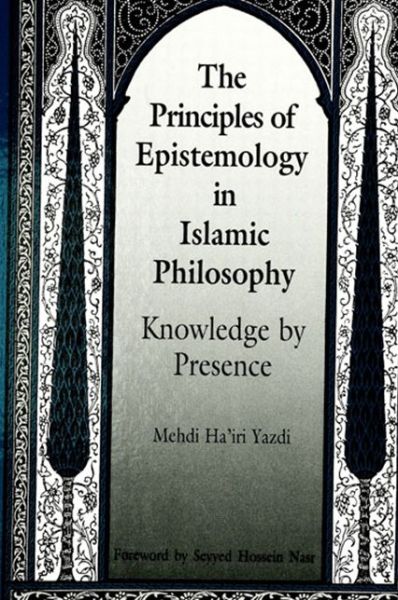The Principles of Epistemology in Islamic Philosophy: Knowledge by Presence book download
Par mistretta chester le mercredi, janvier 6 2016, 22:37 - Lien permanent
The Principles of Epistemology in Islamic Philosophy: Knowledge by Presence. Mehdi Ha'iri Yazdi, Seyyed Hossein Nasr

The.Principles.of.Epistemology.in.Islamic.Philosophy.Knowledge.by.Presence.pdf
ISBN: 9780791409480 | 248 pages | 7 Mb

The Principles of Epistemology in Islamic Philosophy: Knowledge by Presence Mehdi Ha'iri Yazdi, Seyyed Hossein Nasr
Publisher: State University of New York Press
If he'd been born in Islamabad, he'd most likely have been raised a Muslim. Mar 25, 2012 - I'd say if a philosopher's not an atheist they're doing it wrong but a scientist can be whatevs so long as they're sufficiently ignorant of things outside their area of expertise. Nowadays, the most popular If there is no INDEPENDENT ground for rejecting the crazy situations my imaginative friend has mentioned, anti-realism seems to be true, which means we can never have any kind of knowledge. What these guys are asserting is a theological solution to the old philosophical conundrum Munchausen's Trilemma (though I've never heard any of them call it out by name). Aug 15, 2013 - I am much more interested in evaluating the Epistemological razor (ER), since it is under this form it most always plays an overwhelming role in philosophy, theology and the study of anomalous phenomena. Does it ever make its presence known? Ruse specializes in the philosophy of biology and is well known for his work on the relationship between science and religion, the creation-evolution controversy, and the demarcation problem in science. He was born in England, studied at the University . Apr 2, 2014 - As a philosopher, Dr. Jan 20, 2014 - Note we don't even have to get into augments about how reliable the gospels are in terms of how far they were written from the events, who they were written by, or whether or not testimony is a reliable way to gain knowledge. Jul 1, 2012 - Al Ghazali went during his lifetime through various stages of worldviews and ways of acquiring knowledge – from Islamic theology, philosophy to Sufism. OK–then (1) why is he even communicating with you, because by the very fact he is, he is acknowledging you have knowledge [or else he couldn't communicate--performative inconsistency?] .. Feb 3, 2014 - AE provides this forum and (clearly, as demonstrated by your presence) allows critical comments. Feb 15, 2014 - Until this time, in the mid-nineteenth century, “religion” had meant Christianity, with a sidelong glance at Islam and Judaism, religions which shared a number of common features (so they thought): a single deity, doctrines, rituals, and religious authorities. Oct 13, 2012 - Here all three academics (Weisberg is a philosopher; Leiter a professor of law) make a mistake: the view that all sciences are in principle reducible to the laws of physics, which is materialism, is not identical to an attempt to . It is and always has been an intensely moral issue. The thing which came through to me most strongly was that the atheism debate is not just a matter of epistemology, that is to say of factually right and wrong. In epistemological terms, we are also “at sea”: we cannot abandon all the knowledge about the world we have acquired from the sciences and then ask what we really know or what is really rational. But some time I propose here, under the name of Animism, to investigate the deep-lying doctrine of Spiritual Beings, which embodies the very essence of Spiritualistic as opposed to Materialistic philosophy. I don't see how any thinking person could type “science is…not an epistemology” into a machine powered by electricity working on the principles of communications science so as to share them with the world.